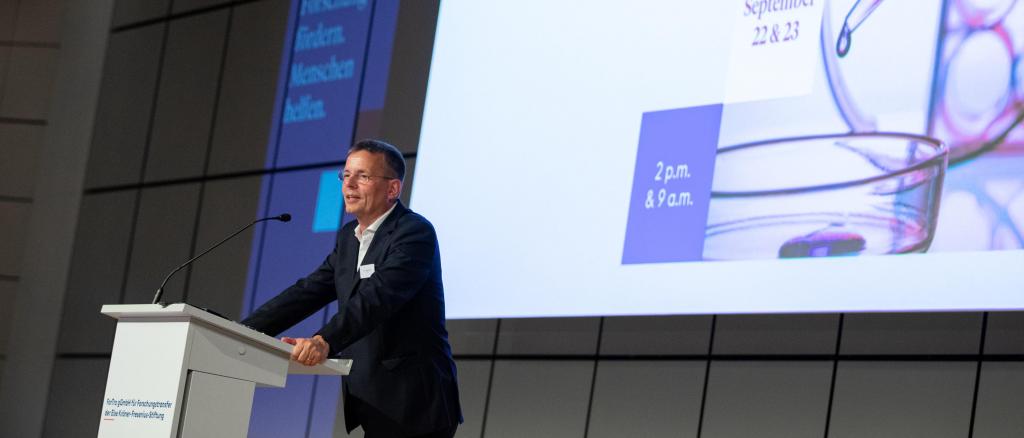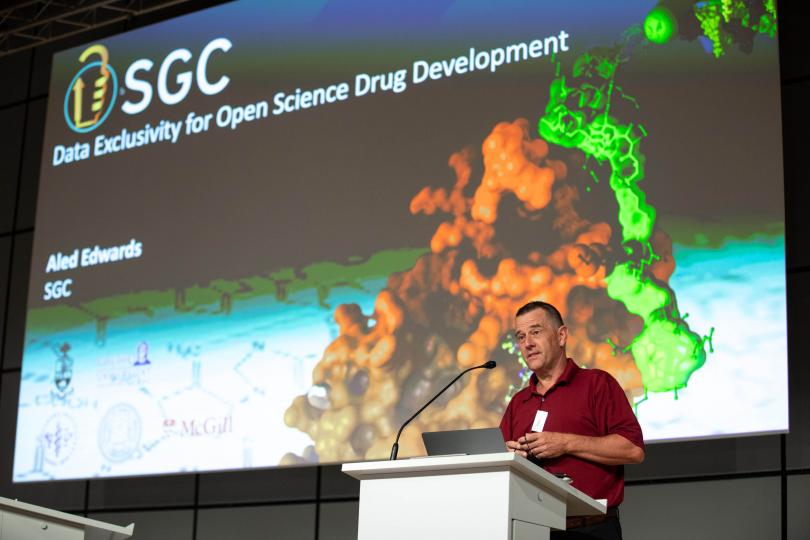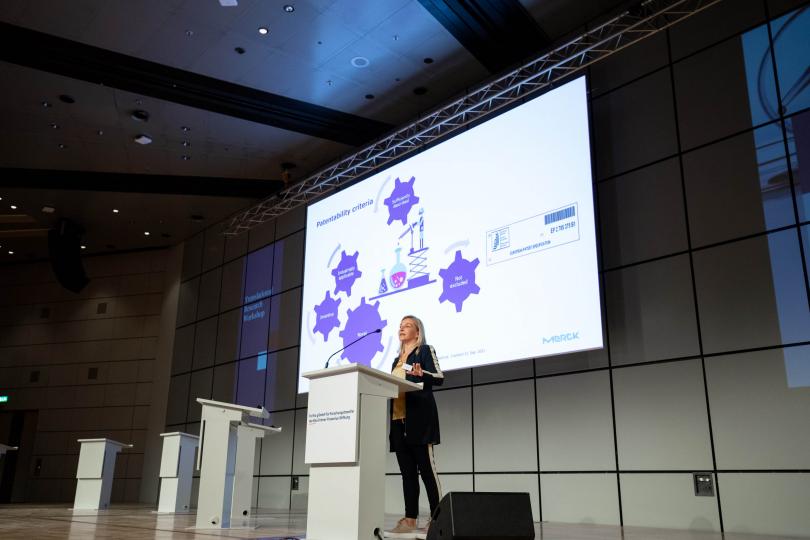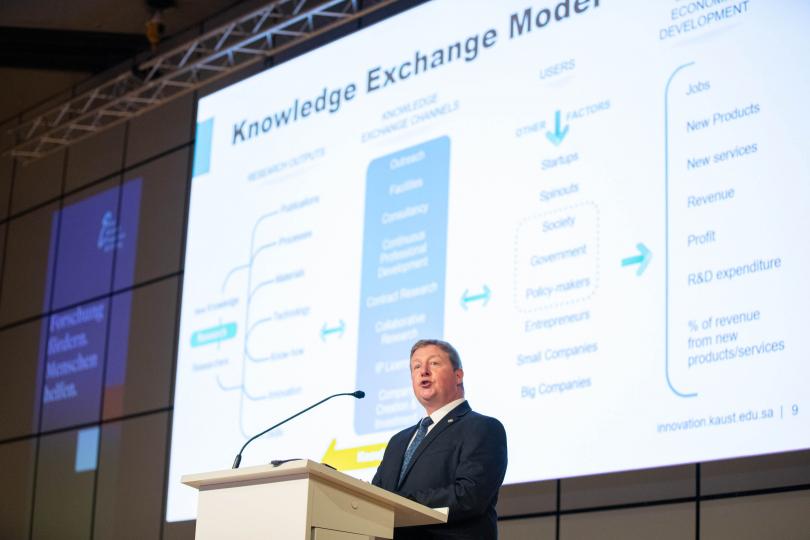
The workshop hosted by the firm ForTra gGmbH für Forschungstransfer der Else Kröner-Fresenius-Stiftung, a subsidiary of the EKFS foundation, addressed researching physicians (Clinician Scientists) interested in the successful implementation of their projects at hospital clinics. 90 participants attended the event, which took place at the Messe Frankfurt Congress Center this year due to the pandemic. The focus was placed on specialist presentations regarding the topics of regulatory prerequisites for the clinical application of innovative therapeutic approaches, patent law and the significance of protective rights for the market launch chances of new medicine, and continued financing options after pre-seed funding.
Following the welcoming remarks given by Prof. Dr. Martin Zörnig, the managing director of ForTra gGmbH, the workshop commenced with keynote speaker Dr. Kevin Cullen, vice president of innovation and economic development, King Abdullah University of Science and Technology, Saudi Arabia. His impulse-generating presentation “For Love or Money? Why Universities do Tech Transfer” made it clear how and to what extent modern technology transfer can achieve social impact. Dr. Matthias Stein-Gerlach, head of business development at Lead Discovery Center GmbH, subsequently presented the activities pursued at the Lead Discovery Center (LDC) itself along with the possibilities to develop new compounds to combat disease-relevant targets in cooperation with the LDC. Dr. Philipp Uhl from Heidelberg University Hospital reported on the development status of the “LipOra” project funded by ForTra in which a new technology for the successful oral absorption of peptides is being developed and validated. The first day concluded with a get-together that was utilized for lively discussions and intensified elaborations on the subjects.
Under the direction of chairman Dr. Ansgar Santel, technology development manager at Ascenion GmbH, the second day of the workshop started off by taking a closer look at regulatory issues in conjunction with the development of new therapeutic approaches. Dr. Martina Schüssler-Lenz from the Paul-Ehrlich-Institute (PEI) and chair of the EMA Committee for Advanced Therapies spoke about the topic “Translation of innovative medicines from bench to bedside.” Dr. Gabriele Dallmann, co-founder of the consulting firm Biopharma Excellence, joined the workshop via video conference hookup to present “Important regulatory aspects to be addressed on the way to first-in-human clinical studies.” Keynote speaker Dr. Kathrin Körner from Merck KGaA used her presentation to focus on patent law and the benefit of “second medical use” claims in patents. In addition, Prof. Winfried Wels (Georg-Speyer-Haus in Frankfurt) and Prof. Simone Spuler (Charité ─ Universitätsmedizin Berlin and Max-Delbrück-Center for Molecular Medicine) presented their innovative cell therapies for treating glioblastomas and muscular disorders currently being funded by ForTra. “Financing options” for biomedical projects, the ensuing thematic focal point, was accompanied by chairman Dr. Axel Polack, general partner of the Joint Polish Investment Fund. Later on he followed up the specialist presentations by moderating a panel discussion on the subject “Financing the development of novel therapies – how does it work?”
To conclude the workshop, Prof. Aled Edwards from the University of Toronto, director of the Structural Genomics Consortium and director of M4K Pharma, delighted the participants with a distinctively interesting and provocative paper on the topic “Open drug discovery – a path to affordable medicines for all.” Prof. Edwards placed the refraining from filing patents at the center of a successful alternative drug development strategy that leads to a massive reduction of development costs for manufacturing affordable new medicines.
Alongside elation with regard to the long and sorely missed personal exchange within the framework of an in-person event, as bottom line for the event the realization remains just how many different things have to be paid attention to on the long path in translating fundamental research into clinical application. Though this realization is nothing new, with the event series ForTra would like to use clarification at an early stage to help physicians to shorten this long path.


